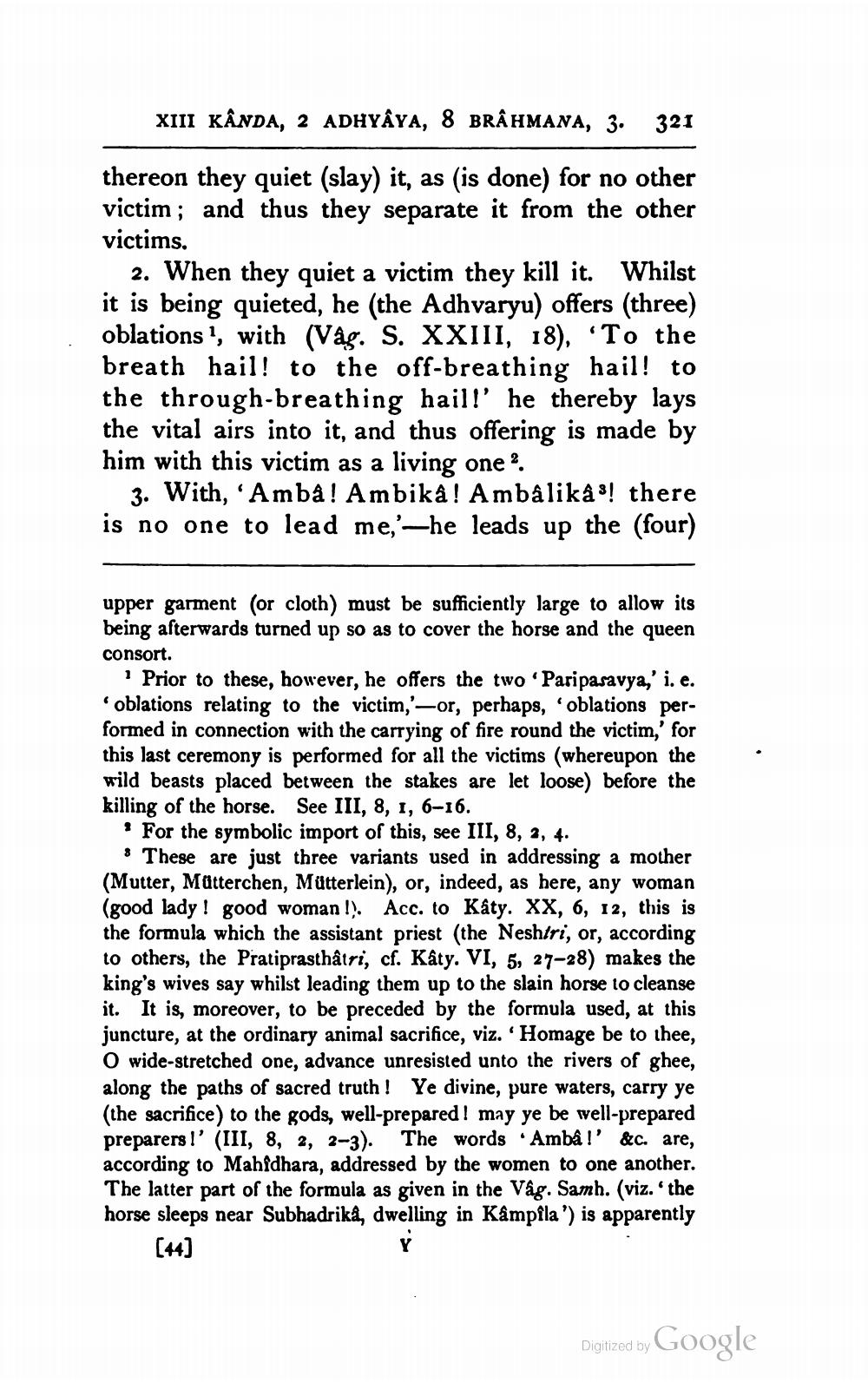________________
XIII KÂNDA, 2 ADHYAYA, 8 BRAHMANA, 3. 321
thereon they quiet (slay) it, as (is done) for no other victim; and thus they separate it from the other victims.
2. When they quiet a victim they kill it. Whilst it is being quieted, he (the Adhvaryu) offers (three) oblations', with (Vag. S. XXIII, 18), 'To the breath hail! to the off-breathing hail to the through-breathing hail!' he thereby lays the vital airs into it, and thus offering is made by him with this victim as a living one 2.
3. With, 'Ambâ! Ambikâ! Ambâlikâ! there is no one to lead me,'-he leads up the (four)
upper garment (or cloth) must be sufficiently large to allow its being afterwards turned up so as to cover the horse and the queen
consort.
1 Prior to these, however, he offers the two 'Paripasavya,' i. e. 'oblations relating to the victim,'-or, perhaps, 'oblations performed in connection with the carrying of fire round the victim,' for this last ceremony is performed for all the victims (whereupon the wild beasts placed between the stakes are let loose) before the killing of the horse. See III, 8, 1, 6-16.
For the symbolic import of this, see III, 8, 2, 4.
These are just three variants used in addressing a mother (Mutter, Mütterchen, Mütterlein), or, indeed, as here, any woman (good lady! good woman!). Acc. to Kâty. XX, 6, 12, this is the formula which the assistant priest (the Neshiri, or, according to others, the Pratiprasthâtri, cf. Kâty. VI, 5, 27-28) makes the king's wives say whilst leading them up to the slain horse to cleanse it. It is, moreover, to be preceded by the formula used, at this juncture, at the ordinary animal sacrifice, viz. 'Homage be to thee, O wide-stretched one, advance unresisted unto the rivers of ghee, along the paths of sacred truth! Ye divine, pure waters, carry ye (the sacrifice) to the gods, well-prepared! may ye be well-prepared preparers!' (III, 8, 2, 2-3). The words Ambâ!' &c. are, according to Mahîdhara, addressed by the women to one another. The latter part of the formula as given in the Vâg. Samh. (viz. ' the horse sleeps near Subhadrika, dwelling in Kâmpîla') is apparently
[44]
Y
Digitized by
Google




